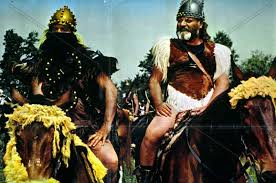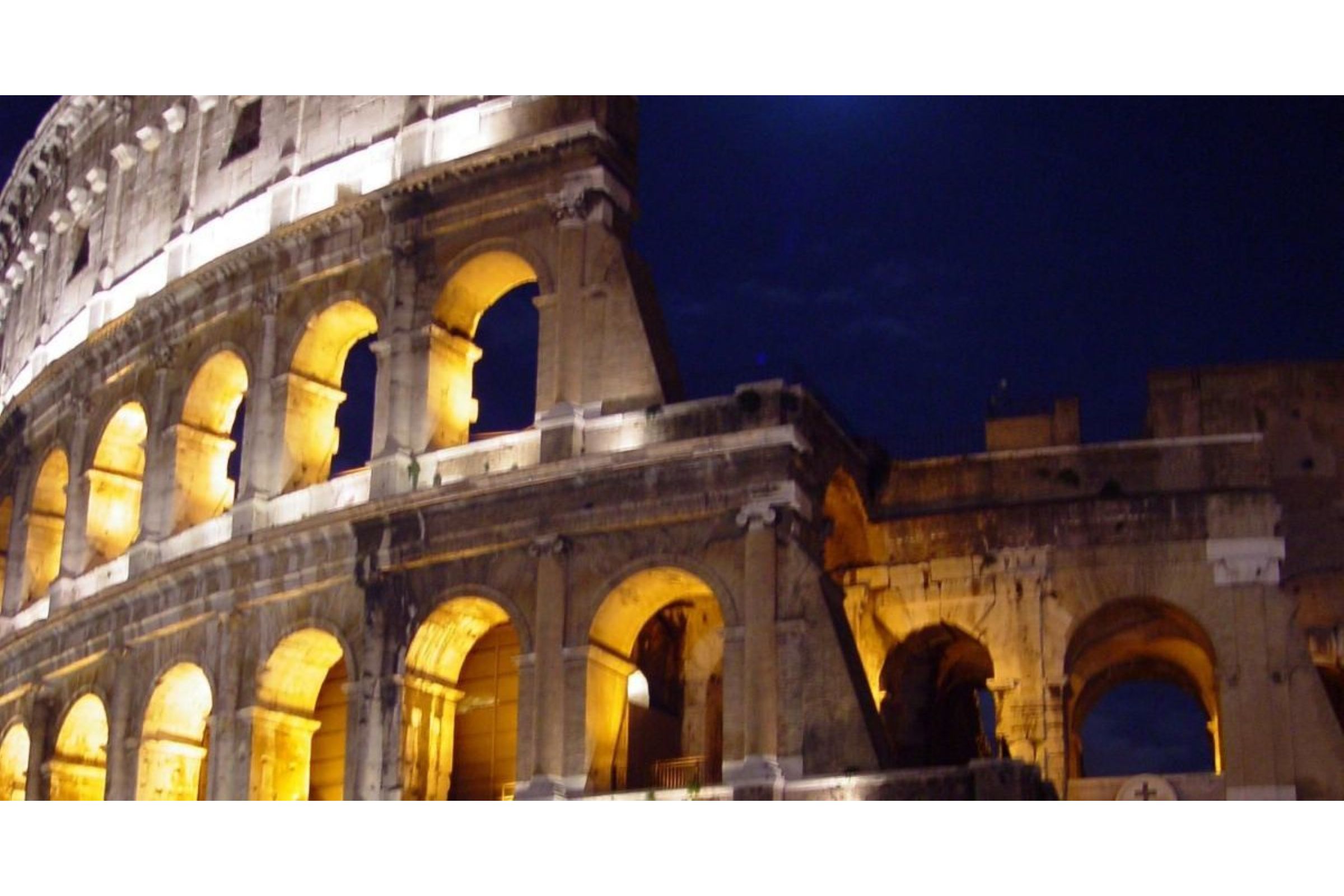The end of the Roman Empire
Three times, in the 5th century, Italy is reached from the barbarians.
Alaric and the Visigoths reach Rome in 410; Attila and the Huns turn back from northern Italy in 452;
Gaiseric and the Vandals reach Rome again, this time from Africa, in 455. But the decisive blow comes in 476.
German mercenaries form at this time an important part of any Roman army, and Roman armies play a major role in the making and breaking of emperors. In a putsch of AD 476 the German soldiers want to settle in Italy, they claim that a third of every landowner's estate should be made over to them.
The claim is not so unreasonable, Roman soldiers have in the past been rewarded with land, and barbarian tribes have been settled in territories of the empire, but the Germans' demand is rejected.
The tribesmen elect as their king Odoacer who leads them to a quick victory, his intention is not to destroy the empire, he wants only to be part of it.
He sends messages to the emperor Zeno in Constantinople, acknowledging his leadership but asking to be allowed to administer Italy as king of his own people. Zeno reluctantly agrees.
The senate in Rome accepts the fact.
The nomination of Odoacer as king of Italy in 476 causes this year to be seen as the end of the Roman empire.

